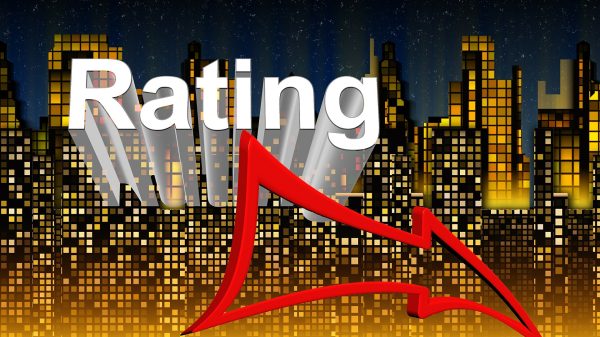Before considering the pros and cons of cosigning a loan, you must understand the different reasons that could cause someone to need a cosigner. The reason why someone would need a cosigner should have a major influence on your decision of whether to agree to be a cosigner or not.
What is cosigning a loan?
To get approved for a loan, some people are looking for a cosigner. In a situation when a loan applicant can’t satisfy the requirements (criteria) of a loan application, the bank may ask for a cosigner to the loan agreement. The cosigner is someone who has a good credit rating and who agrees to have the role of co-borrower (or guarantor). Thus, the cosigner is responsible for loan repayment if the borrower cannot fulfill its obligation. In other words, the cosigner should repay the loan if the borrower cannot do so, which means that a cosigner has the role of a guarantor to the loan application. Considering that cosigning a loan is a major responsibility because if the applicant defaults on loan repayment, then the cosigner is liable to repay the outstanding loan amount.
When would someone need a cosigner?
You should understand why a bank is asking for a cosigner. What is the financial situation of the applicant that has resulted in his/her obtaining a loan? Namely, the reasons that have to lead to the need for a cosigner. There are multiple reasons due to which you might be asked to be cosigning a loan. Some of them are:
- Unsatisfactory income level – if you can not fulfill the minimum income requirements, then you could be asked for a cosigner. Thus, the guarantor will help you meet the minimum income needed for the specific loan you are applying for.
- Lack of payment history – maybe you have been blessed not to need a loan in your life. But at some point, you decide to apply for a loan for whatever reason. The major problem with your application would be the lack of payment history. Thus, banks can’t analyze your financial behavior in the past. Meaning that they don’t know whether you are a responsible borrower or not. You don’t have an adequate credit score. This is not something to worry about, but it does affect your ability to apply for a loan because payment history is forming 35% of your credit score. For this reason, banks will ask for a cosigner with stable payment history.
- Bad credit –the previous reason is taking into account the lack of payment history (which is related to your credit score) and thus the need for a cosigner. Banks could also ask for a cosigner if the loan applicant has bad credit. Having bad credit signals the banks that you could have problems managing your money, that you might be financially irresponsible, or that you can not fulfill your debt obligations. Whatever the reason for your bad credit, the banks could ask you to find a cosigner. Banks want to protect their money and ensure repayment of the loan. They don’t really care if you are repaying the loan or your cosigner does.
- Debt to income ratio – you could be asked to find a cosigner if your debt-to-income ratio is high. Meaning that, although you have the required minimum income, there is a risk that you will not be able to meet the loan payments. This risk is because you are overindebted and because a bigger part of your income is going toward repayment of current financial obligations. -You could find more information about the debt to income ratio here (POST za deb to income ratio).
Before cosigning a loan, you should also inform yourself about the probable pros and cons that could appear for you and your financial health. As well as inform yourself bout the risks that are involved in cosigning a loan.
Pros from cosigning a loan
- Help a relative or close friend – being a cosigner could offer the satisfaction that you have done something to help someone else, which means that you could help your relative or friend obtain the needed loan.
- Increasing your credit score – cosigning a loan can go in either direction when taking into consideration the effect on your credit score. Namely, it can have positive as well as negative effects on your credit score. That’s why the effect of cosigning a loan will be viewed as an advantage and disadvantage in relation to your credit. The loan where you appear as a cosigner will be recorded on your credit report. Thus, the repayment history of the loan will affect your credit score.
- For this reason, cosigning can help you increase your credit rating only in circumstances when the loan is repaid on time. The borrower does not have any late payments. Otherwise, you bear the risk of decreasing your overall credit rating if the loan is not paid on time.
- Lower interest rate – this advantage is closely related to the credit issue when cosigning a loan. If the borrower is repaying its debt on time, cosigning a loan will boost your credit score. Banks are charging lower interest rates to people with high credit scores. Thus, cosigning a loan can indirectly decrease the interest rate on loans you could apply for in the future.
Cons from cosigning a loan
- Limited borrowing power – It can limit your borrowing power in the future because lenders would see that you might have a potential repayment of a debt in the future in case the borrower defaults on the loan. This could affect the lender’s decision whether to lend you money in the future or the amount they will be willing to lend to you.
- Debt to income ratio – this is to a large extent interconnected with the limited borrowing power disadvantage. When cosigning a loan, it is recorded on your credit report. Thus, the loan payment which you have cosigned is calculated in your debt to income ratio. This could make it harder for you to obtain a loan or to obtain the needed amount.
- Provide collateral – keep in mind that the bank could ask the cosigner to provide some form of collateral in accordance with the agreement. Not paying the loan in the future could leave you without your collateral which might be seized by the bank.
- Decreased credit score – previously, it was said that cosigning a loan could positively affect your credit score, as long as it is repaid on time. But, the other side is that it can negatively affect your credit score as well. Meaning that if the debt is not serviced on time, it will be recorded on your credit report, which will cause a decrease in the credit score.
- Higher interest rate – this is closely related to the credit score. If the borrower is not paying its financial obligations on time, it could decrease your credit score. Consequently, increasing the interest rate you may have to pay in the future on your loans. This is because lenders compensate the higher risk, from applicants with low credit scores, with higher interest rates. This is increasing your cost of borrowing, and you will have more expensive loans in the future.
Cosigning a loan carries more disadvantages than advantages for you. Ensure that you understand why a person is looking for a cosigner before accepting to be a cosigner. Is it because of lack of payment history or irresponsible financial behavior in the past? Never be a cosigner of a person you do not know or you are not close with. There could be situations where people intentionally ask for a cosigner, and they know beforehand that they will not repay the loan. They want to trick you, abuse your kindness for personal financial benefit.






